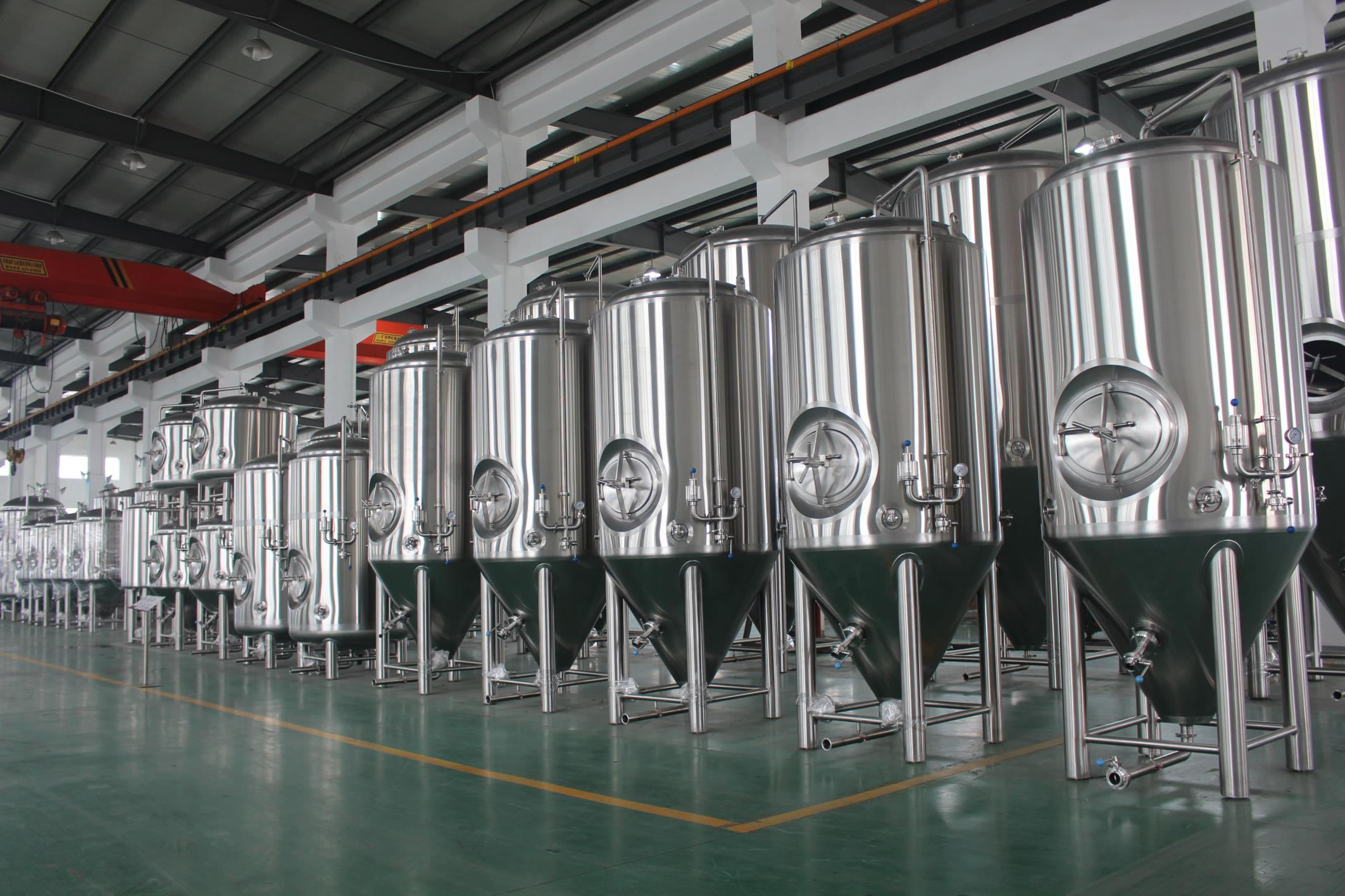How Does A Micro Brewing System Differ From A traditional Brewing System?
Craft beer has been growing in popularity in recent years, and with that, the demand for small-batch brewing has risen. Enter the micro brewing system, a smaller and more efficient alternative to traditional brewing systems. While traditional brewing systems have been used for centuries to produce high-quality beer, micro brewing systems have become increasingly popular among home brewers and small businesses who want to experiment with different brewing techniques and ingredients. In this post, we’ll take a closer look at the key differences between micro brewing systems and traditional brewing systems, and explore why micro brewing has become such a popular trend in the beer industry.
Size Of Micro Brewing Systems And Traditional Brewing Systems
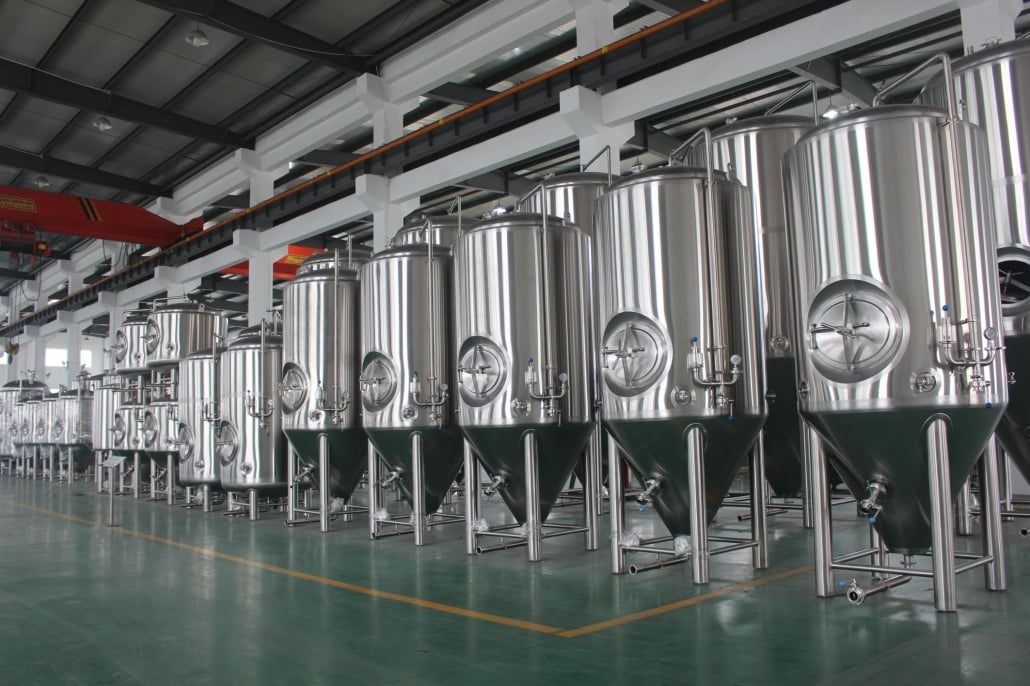
Micro brewing systems are designed to produce smaller batches of beer than traditional brewing systems. Typically, micro brewing systems can produce anywhere from a few gallons to several hundred gallons of beer per batch, whereas traditional brewing systems are capable of producing thousands of gallons at a time.
The smaller size of micro brewing systems makes them an ideal choice for home brewers or small businesses who don’t have the space or resources to operate a full-scale brewery. Micro brewing systems can fit into a relatively small space, making them a more accessible option for those who want to get into the beer industry without a significant financial investment.
While traditional brewing systems are often large and complex, micro brewing systems are designed to be more streamlined and user-friendly. They are equipped with features such as digital temperature controls, automated mash systems, and other tools that make the brewing process more efficient and precise.
Overall, the smaller size of micro brewing systems allows for greater flexibility and experimentation in the brewing process. Brewers can experiment with different ingredients, flavors, and techniques without the risk and expense of producing large batches of beer that may not sell well. This makes micro brewing an attractive option for those who want to create unique and innovative beers that stand out in a crowded market.
Capacity Of Micro Brewing Systems And Traditional Brewing Systems
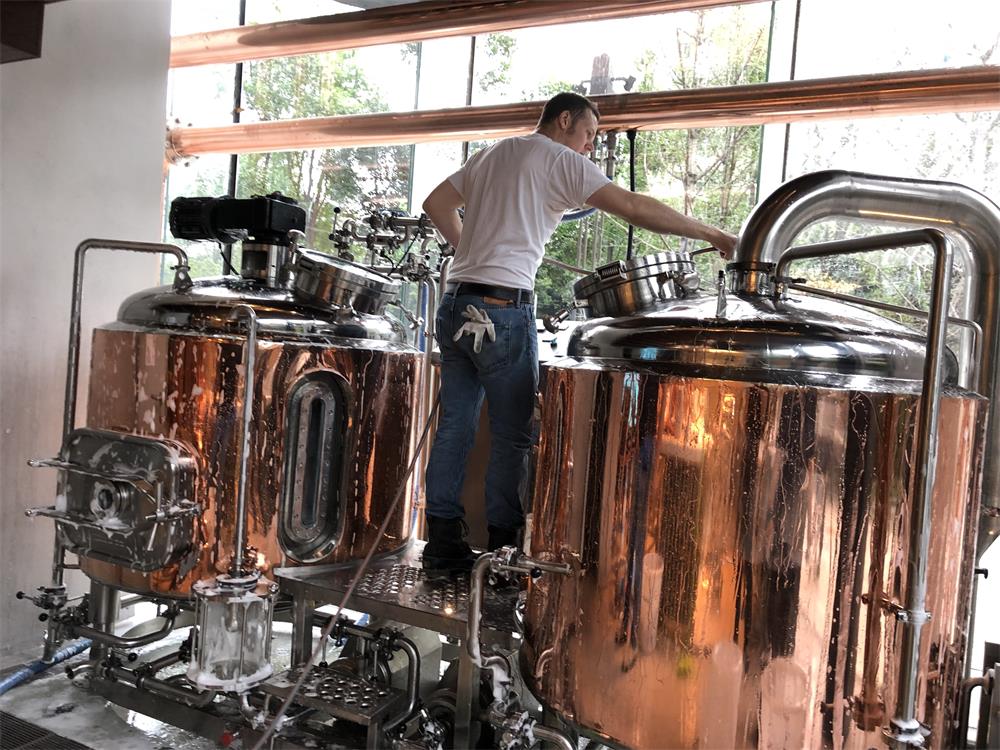
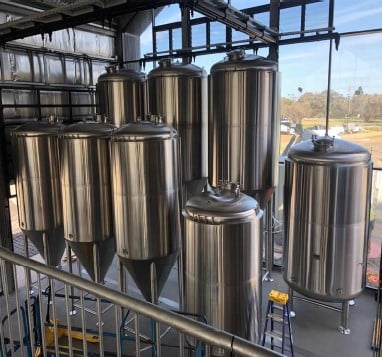
Capacity is another significant difference between traditional brewing systems and micro brewing systems. Traditional brewing systems are designed to produce large quantities of beer in a single batch, often in the range of several thousand gallons. This capacity is necessary for large-scale breweries that need to produce enough beer to meet demand in a timely and efficient manner.
On the other hand, micro brewing systems are designed to produce smaller batches of beer. The capacity of a micro brewing system typically ranges from a few gallons to several hundred gallons. This smaller capacity makes micro brewing systems an ideal choice for small businesses or home brewers who want to produce beer on a smaller scale and experiment with different recipes and techniques.
While the capacity of micro brewing systems may be limited, they offer a number of advantages over traditional brewing systems. For example, the smaller batch size allows for greater flexibility and experimentation in the brewing process. Brewers can experiment with different ingredients, flavors, and techniques without the risk and expense of producing large batches of beer that may not sell well.
Another advantage of micro brewing systems is their ability to produce a wider range of beer styles. With a traditional brewing system, it can be difficult to produce a wide variety of beer styles due to the large batch size and limited flexibility in the brewing process. Micro brewing systems, on the other hand, allow for greater experimentation and creativity in the brewing process, making it easier to produce a wider range of beer styles.
In summary, the smaller capacity of micro brewing systems may limit their production capabilities, but it also offers a number of advantages over traditional brewing systems, including greater flexibility, experimentation, and the ability to produce a wider range of beer styles.
Cost Of Micro Brewing And Traditional Brewing Systems
One of the most significant advantages of micro brewing systems over traditional brewing systems is cost. Micro brewing systems are generally less expensive to purchase, operate, and maintain than their traditional counterparts. This makes them an attractive option for small businesses or home brewers who want to get into the beer industry without a significant financial investment.
Traditional brewing systems can cost hundreds of thousands of dollars or more to purchase and install. In addition to the initial investment, traditional brewing systems require a significant amount of space, equipment, and utilities to operate, which can add up to substantial ongoing costs. This can be a significant barrier to entry for small businesses or home brewers who want to get started in the beer industry.
Micro brewing systems, on the other hand, are designed to be more affordable and accessible. They typically cost less than traditional brewing systems and require less space, equipment, and utilities to operate. This makes them an ideal choice for small businesses or home brewers who want to produce beer on a smaller scale and experiment with different recipes and techniques without breaking the bank.
Another advantage of micro brewing systems is their scalability. As a small business grows, it may be necessary to increase production capacity to meet demand. Micro brewing systems can be easily expanded or upgraded as needed, allowing small businesses to increase production capacity without having to invest in a completely new brewing system.
In summary, the lower cost of micro brewing systems makes them an attractive option for small businesses or home brewers who want to get into the beer industry without a significant financial investment. Their scalability and flexibility also make them an ideal choice for small businesses that want to grow and expand their operations over time.
Efficiency Of Micro Brewing And Traditional Brewing Systems
Micro brewing systems are not only more affordable and accessible than traditional brewing systems, but they are also generally more efficient and environmentally friendly. One of the ways in which micro brewing systems are more efficient is in their use of resources, particularly water.
Traditional brewing systems can require large amounts of water to produce beer, with some estimates suggesting that it can take as much as seven gallons of water to produce just one gallon of beer. Micro brewing systems, on the other hand, are designed to be more efficient in their water usage. They typically use less water per gallon of beer produced, making them a more sustainable option for brewers who are concerned about their environmental impact.
In addition to their water usage, micro brewing systems are also more efficient in their production of waste. Traditional brewing systems can produce large amounts of waste in the form of spent grains, hops, and other brewing byproducts. This waste can be difficult and costly to dispose of, and can also have a negative impact on the environment.
Micro brewing systems, on the other hand, are designed to produce less waste than traditional brewing systems. Many micro brewing systems incorporate recycling and waste reduction strategies into their design, such as composting spent grains or using them as animal feed. This reduces the amount of waste that is produced during the brewing process and makes micro brewing systems a more environmentally friendly option overall.
In summary, the efficiency of micro brewing systems in their use of resources and production of waste makes them a more sustainable and environmentally friendly option than traditional brewing systems. This is an important consideration for brewers who want to minimize their environmental impact and operate in a more sustainable manner.
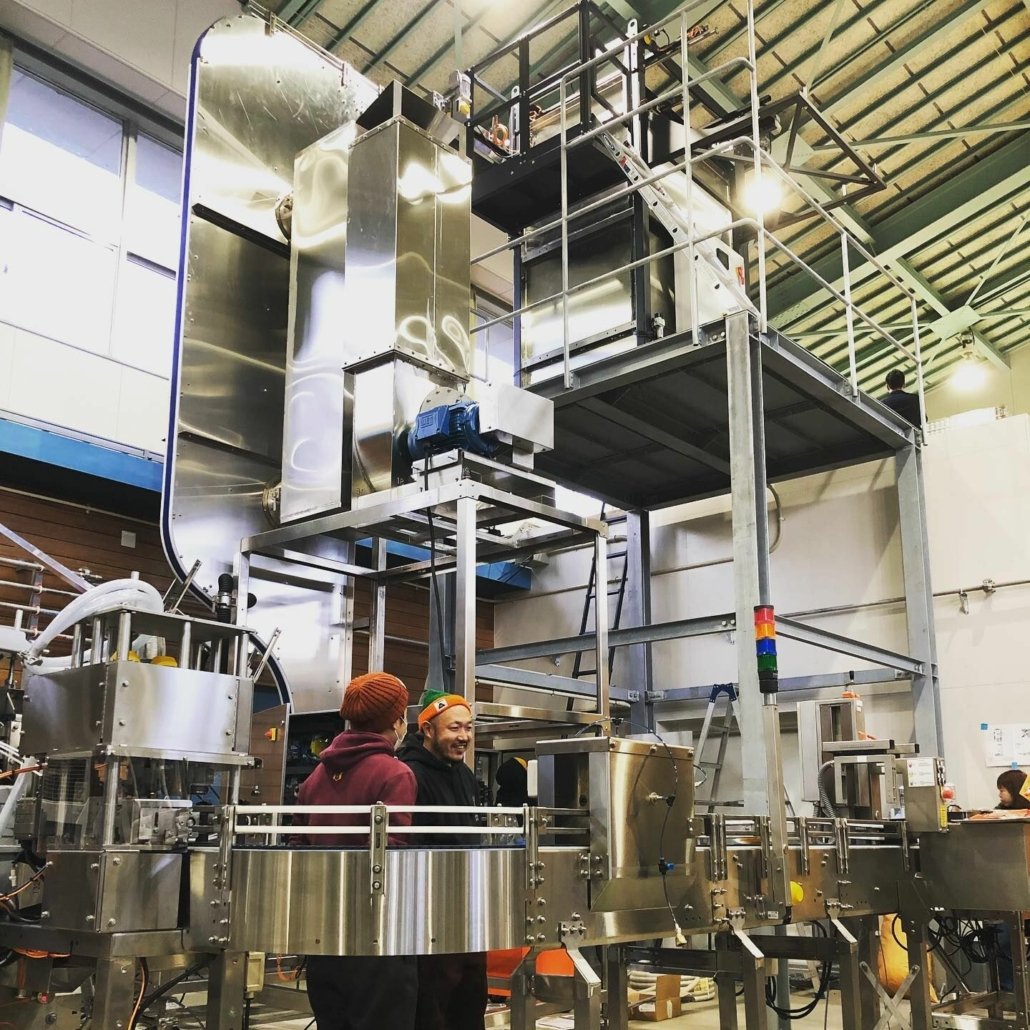
Micro brewing system offer several advantages over traditional brewing systems. They are smaller, more efficient, and more affordable, making them an ideal choice for small businesses or home brewers who want to produce beer on a smaller scale. The smaller batch size also allows for greater flexibility and experimentation in the brewing process, making it easier to produce a wider range of beer styles. Additionally, micro brewing systems are more environmentally friendly, using less water and producing less waste than traditional brewing systems.
While traditional brewing systems have a long history of producing high-quality beer, micro brewing systems have become increasingly popular in recent years due to their ability to create unique and flavorful brews. Whether you are a home brewer looking to experiment with different recipes or a small business looking to enter the beer industry without a significant financial investment, a micro brewing system may be the right choice for you. With their affordability, flexibility, and efficiency, micro brewing systems are a great way to produce high-quality beer and contribute to a more sustainable brewing industry.
Additional FAQs for Micro Brewing System vs Traditional Brewing
1) What batch sizes define a micro brewing system compared to traditional systems?
- Micro brewing systems typically run 0.5–15 bbl per turn, optimized for small-batch flexibility. Traditional systems often start at 30 bbl and scale to 100+ bbl per turn for efficiency and distribution volume.
2) How do utility needs differ between micro and traditional brewhouses?
- Micro systems can operate on single-phase or modest three-phase power, compact glycol, and simple ventilation. Traditional systems usually require higher electrical service or steam, larger glycol chillers, make-up air/hoods, and wastewater pretreatment.
3) Is quality control harder on micro systems?
- Not if SOPs are followed. Micro brewing systems benefit from basic QA tools (pH, gravity, DO) and closed-transfer practices. Larger plants add inline instrumentation (flow, density, turbidity) and lab assays for scale and consistency.
4) Which system is more sustainable per barrel?
- Well-optimized micro systems can achieve 3.5–5.0:1 water-to-beer ratios and cut energy via heat recovery and jacket zoning, but traditional systems can leverage scale for lower per-bbl utilities. Process discipline, not size alone, drives sustainability.
5) Can micro brewing systems support limited distribution?
- Yes. With double-batching and efficient cellar planning, micro setups can self-distribute locally, provided oxygen control, cold-chain, and packaging QA are in place to protect shelf life.
2025 Industry Trends: Micro Brewing System vs Traditional
- Taproom-first economics: Micro systems emphasize on-premise sales and fast rotation; traditional systems prioritize broader wholesale and contract brewing.
- Data and automation: PLC/HMI logging, remote alarms, and basic MES tools are now affordable for micro brewing systems; larger plants deepen integration with ERP/LIMS.
- Low-oxygen workflows: Closed transfers and packaged DO targets (≤100 ppb; ≤50 ppb for hop-forward) are standard across scales.
- Utility optimization: Heat recovery, zoned jackets, and tuned CIP reduce water/energy 10–20% for both micro and traditional setups.
- Flexible packaging: Micro sites adopt semi-automatic canning (15–45 CPM) or mobile canning; traditional plants use high-speed lines with inline QA.
2025 Comparative Benchmarks
| Metric | Micro Brewing System (typical) | Traditional Brewing System (typical) | Notes |
|---|---|---|---|
| Brewhouse size | 3–15 bbl | 30–200+ bbl | Impacts batch cadence |
| Water:beer ratio | 3.5–5.0:1 optimized | 2.7–4.0:1 optimized | Scale + heat recovery |
| Packaged DO target | ≤100 ppb (≤50 ppb hop-forward) | ≤50 ppb | Larger plants monitor inline |
| Labor hours per bbl | 1.5–3.0 | 0.4–1.2 | Automation/scale effects |
| Capex to launch | $250k–$1.2M | $2M–$20M+ | Facility, utilities, lines |
| Time to market | 4–12 months | 9–24 months | Permits + build-out |
| QA toolkit | Handheld DO, pH, gravity, sensory | Inline DO/CO2, lab suite | SOPs critical at any scale |
Sources: Brewers Association benchmarking 2024–2025; MBAA Technical Quarterly; ASBC methods; practitioner reports (ProBrewer)
Latest Research Cases
Case Study 1: Low-Oxygen Upgrades on a Micro Brewing System Improve Shelf Life (2025)
Background: A 7 bbl taproom reported hop aroma fade at 45–60 days in cans.
Solution: Implemented closed FV→brite→filler transfers, CO2 purges, O2‑tight gaskets, handheld DO checks each run, and seam teardown with mobile canning.
Results: Packaged DO 35–85 ppb; returns −26%; cold-chain shelf life exceeded 90 days with improved sensory stability.
Case Study 2: Heat Recovery and CIP Optimization in a Traditional 60 bbl Brewhouse (2024)
Background: Regional brewery sought utility reductions without capex-heavy retrofits.
Solution: Added wort-water heat exchanger loop to preheat liquor, verified spray coverage, introduced conductivity-based CIP endpoints, insulated hot liquor piping.
Results: Water:beer from 4.6:1 to 3.7:1; gas use −9%; CIP time −20 minutes per vessel; projected 11% annual utility savings.
Expert Opinions
- Mary Pellettieri, Quality Consultant; author of Quality Management for Breweries
“Process control beats scale. Documented CIP, oxygen management, and sensory programs deliver consistent beer whether you brew 5 or 50 barrels.” - John Mallet, Brewing Operations Consultant; author of Malt: A Practical Guide
“Design for drainability and cleanability first. Hygienic layouts and reliable utilities are the foundation for both micro brewing systems and large plants.” - Bart Watson, Economist (formerly Brewers Association)
“Right-size production to local demand. Micro systems excel in taproom-driven models; larger systems need disciplined wholesale and forecasting.”
Practical Tools and Resources
- Brewers Association – Benchmarking, draught quality, sustainability: https://www.brewersassociation.org
- TTB – Brewer’s Notice and compliance guidance: https://www.ttb.gov
- Master Brewers Association of the Americas (MBAA) – Technical papers on CIP, oxygen control, cellar design: https://www.mbaa.com
- American Society of Brewing Chemists (ASBC) – Methods for DO, CO2, pH, VDK, turbidity: https://www.asbcnet.org
- ProBrewer – Forums and calculators comparing system sizes and utilities: https://www.probrewer.com
- OSHA/NIOSH – Brewery safety (CO2 monitoring, ergonomics, LOTO): https://www.osha.gov and https://www.cdc.gov/niosh
Sources and further reading:
- BA 2024–2025 benchmarking on water/energy and small-brewery KPIs
- MBAA Technical Quarterly on low-oxygen packaging, jacket zoning, and CIP validation
- ASBC analytical methods that underpin QA at all scales
- Practitioner insights on ProBrewer regarding capex, utilities, and packaging QA for micro vs traditional systems
Last updated: 2025-09-08
Changelog: Added 5 FAQs contrasting micro brewing systems with traditional plants; introduced a 2025 comparative benchmarks table; provided two case studies on low-oxygen upgrades (micro) and utility optimization (traditional); included expert viewpoints; compiled authoritative tools/resources with links.
Next review date & triggers: 2026-01-15 or earlier if BA/TTB/ASBC/MBAA guidance updates, energy/water benchmarking shifts, or oxygen control/packaging practices materially change.
Share this entry
Interested in learning more about Brewing Systems including additional details and pricing information? Please use the form below to contact us!
YOLONG BREWERY EQUIPMENT FAQS
- Commercial Brewery / Craft Brewery / Microbrewery / Nanobrewery
- What is The Difference Between Craft Beer and Industrial Beer?
- The Bespoke Differences In Custom Brewing Systems
- Everything You Need to Know About Kettle Souring
- How to Choose Brewing Equipment for Your business?
- How To Choose The-Best Partner To Build Your Commercial Microbrewing System?
- Two Detection Sensors That You Need To Use In Your Brewhouse System
- Remote Control Applications in Brewing Equipment/How does it work?
- How To Clean Your Brand New Brewery Tanks?

